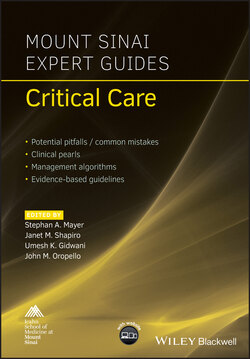Читать книгу Mount Sinai Expert Guides - Группа авторов - Страница 142
Adaptation to special situations
ОглавлениеSevere respiratory failure:In patients with respiratory failure or significant ventilator dependence, care should be taken to avoid overfeeding patients. Overfeeding shifts the body into lipid synthesis with concomitant elevation in arterial CO2 levels potentially lengthening ventilator support duration.For the production of the same amount of energy, the oxidation of lipid generates 25% less CO2 than carbohydrates. In patients with hypercapneic respiratory failure, a greater proportion of the caloric requirement should be met by lipids.
Renal failure:Renal failure leads to metabolic acidosis secondary to accumulation of numerous organic acids and increased loss of bicarbonate. TPN orders should be modified to provide additional bicarbonate (as acetate) and to avoid iatrogenic hyperchloremic acidosis.Continuous renal replacement therapies can result in up to 65 g/day loss of protein through the dialysate/ultrafiltrate process. Consequently, it is important to replenish the protein stores at a higher rate (≥1.5 g/kg/day).Volume overload is a common complication of renal failure and has adverse impacts on other organ systems including the heart and the lung. Minimizing the total volume of the TPN solution by concentrating the elements can be helpful in preventing this from arising.Electrolytes need to be carefully monitored in patients to avoid the risk of life‐threatening hyperkalemia and other electrolyte imbalances.
Liver failure:Patients have poor intrinsic synthetic function and may require greater protein replacement.Repletion of micronutrient reserves including water‐soluble vitamins requires special consideration.The use of branched chain amino acids in patients with hepatic encephalopathy has yielded mixed results and cannot be recommended as standard practice.If total bilirubin is >4, remove copper and manganese by omitting trace elements to avoid toxicities (these elements are dependent on bile for excretion).
